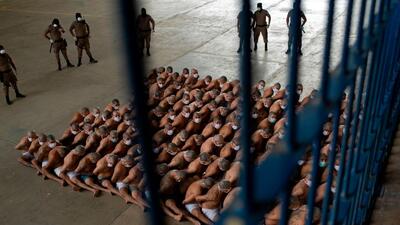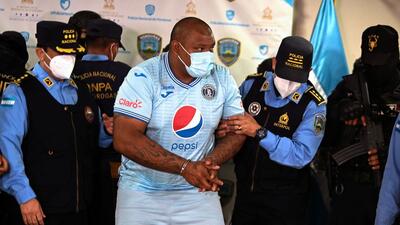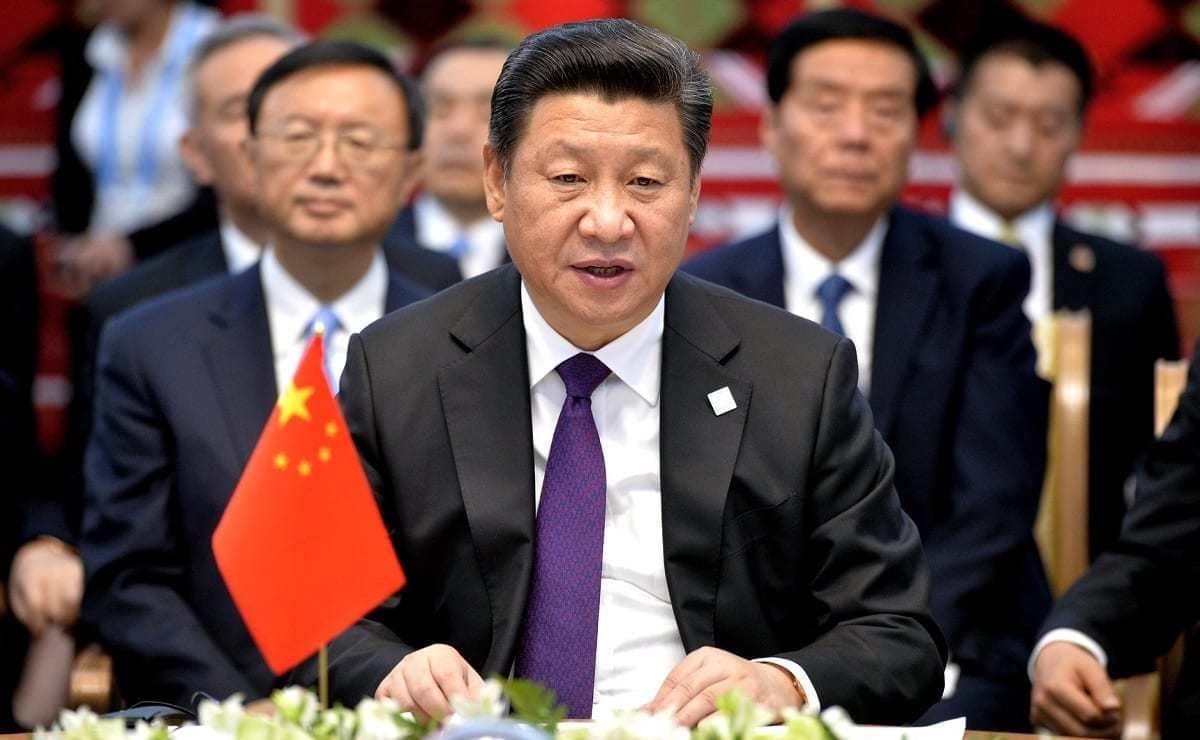CRIMINAL CAPITALI$M
Political control, money and firepower: Latin American 'maras' evolve beyond gangs, a new report warns
MS-13 is now "among the largest non-state armed groups in the Western Hemisphere," according to a new report.
POR::DAVID C ADAMS
PUBLICADO 30 MAY 2022

A former MS-13 gang leader is pictured at Santa Ana prison, 60 km northwest of San Salvador. Crédito: OSCAR RIVERA/AFP via Getty Images
Gangs in Central and South America are growing so powerfully connected to state institutions that they have morphed from their traditionally isolated, street-level criminal activities to become dangerous “community-embedded transnational armed groups” with corrupt ties to the police and political parties, according to a new report published the National Defense University in Washington.
“If you look at their territorial control, financial power, military control, political influence, they've really you know, they've gone far beyond just gangs,” one of the authors, Douglas Farah, told Univision Noticias.
“They're not really organized crime or cartel owners, but they're certainly not just gangs any more like what they were in the early 1990s, guys were still earrings on busses who rip off your purse and sell crack on the street. These guys are now structures, coherent military and political economic forces that need to be viewed in a different light,” said Farah who is a former journalist a veteran regional security analyst who was conducted research for the U.S. government.

Members of the "Mara 18" and "MS-13" gangs are seen in custody of guards at a maximum security prison in Izalco, Sonsonate, El Salvador on September 4, 2020, amid the new coronavirus pandemic. Crédito: YURI CORTEZ/AFP via Getty Images
"Gangs No Longer" - a new report on MS-13
Groups like MS-13 in Central America and First Command of the Capital (PCC) in Sao Paulo, Brazil, “are growing in power and influence while the state is in retreat” and are in large part responsible for the growing waves of corruption and instability in theregion, adds the report, titled ‘Gangs No Longer: Reassessing Transnational Armed Groups in the Western Hemisphere’.
Their “vise-like territorial control” developed over three decades of existence, has allowed them to co-opt state entities through corruption and intimidation, while establishing the groups as legitimate governing entities, the 44-page report concludes. This new maturity of leadership and a willingness to end economic gain from extortion and other hated practices in exchange for political support have in fact led to economic and political gain.
MS-13's political influence in El Salvador and Honduras
The report highlights the political influence of MS-13 in El Salvador and Honduras, including allegations of ties to the government of Nayib Bukele in El Salvador and the former government of Juan Orlando Hernandez in Honduras. In El Salvador, media reports have alleged that MS-13 negotiated the homicide rate with government officials, in exchange for money, access to cabinet-level positions, and favorable prison conditions.
In Honduras, MS-13 has moved into the cocaine trade including trans-shipments from South America as well as developing the ability to process coca paste into refined cocaine in its own laboratories, in order to cash in on the much higher value for the finished product. This has also involved the corruption of the police, military, and judicial structures to guarantee its political control over its territories.

Yulan Adonay Archaga Carias, the alleged leader of MS-13 for all of Honduras—and a member of the FBI's Ten Most Wanted Fugitives List. Crédito: Twitter - FBI Most Wanted
Porky case, an example of MS-13's political influence in Honduras
As an example of their growing political influence, Farah pointed to the case of a notorious Honduras MS-13 leader, Yulan Andony Archaga Carías, alias ‘Porky,’ the Leader of MS-13 in Honduras who was named to the FBI’s Ten Most Wanted Fugitives List in November 2021 and charged with trafficking multi-ton shipments of cocaine into the U.S. and multiple murders.
Honduran and U.S. investigators believe Porky enjoyed the protection of Honduran government officials, possibly including former Honduran president, Juan Orlando Hernandez, Farah told Univision. He escaped in broad daylight while being transferred under heavy armed guard to a supposed court hearing in 2020 and has not been seen since.
Hernandez is being held in the United States on charges in federal court in New York for cocaine and arms trafficking.
MS-13 members were also allegedly responsible for the murder of a key witness against Tony Hernandez, the president's brother.

Hernandez, and Bukele in El Salvador, have both strongly rejected any ties or negotiations with MS-13.
The Porky case “shows the deeper reach MS-13 has to government structures. They're no longer outsiders, they can negotiate directly with power,” said Farah who spoke directly with U.S. and Honduras officials investigating MS-13 and its political links.
“For the Porkys of this world this allowed them for the first time to develop direct political access where they could negotiate their highest desires at a very senior government level and get something concrete in exchange for it,” he added.

Members of the criminal gang Mara Salvatrucha (MS-13) are escorted by officers of the National Police in Tegucigalpa on February 19, 2021, after the dismantling of an operations centre of the organisation found in the mountains of the department of Olancho, north of Honduras. Crédito: ORLANDO SIERRA/AFP via Getty Images
Gangs are an existential threat to Central American countries
Like MS-13, the PCC in Brazil has become increasingly active in the global cocaine trade, expanding to control key ports and trafficking routes across the hemisphere. The revenue from this cocaine trade has also given the PCC the means to pursue political protection at the local, regional, and national levels in much of the country.
MS- 13 is smaller and not as well structured as the PCC is Brazil, but poses a more existential threat in Central America as well as to the United States. “They control towns in El Salvador and Honduras and they operate in chunks of Guatemala, and along Mexico border,” said Farah.
Less interested in crossing the border themselves, MS-13 is more dedicated to trafficking drug into the United States, as well as profiting from migrants smuggling rings.
The authors point out socioeconomic factors such as police violence and poverty in Central America as well as racial discrimination against Blacks in Brazil have made the groups harder to defeat.
The report warns that unless new policies are adopted to tackle these groups their territorial control could give them the ability to deliver large blocks of votes with the corresponding political influence as a result.
So far, solutions such as repression and mass incarceration have failed to undermine the maras and has only made them stronger and helped them recruit new members across the prison systems.
The authors of the report said recommended adopting the Biden administration’s double-pronged approach of combating corruption and its root causes, including police reforms and prosecution of corrupt politicians, while also combating transnational organized crime.

Police officers guard Tokiro Ramirez Rodas (C) aka "Komander", leader of the Mara Salvatrucha (MS-13) gang, required for extradition to the US for alleged drug trafficking in Tegucigalpa, on March 18, 2022. Crédito: ORLANDO SIERRA/AFP via Getty Images















